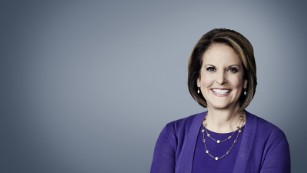It seems almost quaint, really, to go back to the start of this presidential campaign when the question du jour was whether Chris “just-sit-down-and-shut-up” Christie was too much of a bully to become president. Temperament, it seems, was a requirement.
Or even go back to Hillary Clinton’s 2008 derision of Barack Obama as not ready to be president and take that 3 a.m. phone call about a national security crisis. Experience and depth of knowledge was also an issue.
But that’s ancient histo ry. Somehow, the notions of temperament and experience have been overtaken by the desire — at least according to the polls so far in the GOP race — for what passes as a show of strength, unbound by convention and unattached to complexity. Donald Trump, the undisputed frontrunner, reigns supreme, no matter what the half-formed solutions. As in: Muslims are trying to kill us, so let’s keep them out. Illegal immigrants are “raping” and taking our jobs, so let’s keep them out. Civility — now called political correctness — is ruining our national conversation, so let’s abandon it.
ry. Somehow, the notions of temperament and experience have been overtaken by the desire — at least according to the polls so far in the GOP race — for what passes as a show of strength, unbound by convention and unattached to complexity. Donald Trump, the undisputed frontrunner, reigns supreme, no matter what the half-formed solutions. As in: Muslims are trying to kill us, so let’s keep them out. Illegal immigrants are “raping” and taking our jobs, so let’s keep them out. Civility — now called political correctness — is ruining our national conversation, so let’s abandon it.
The cliché is that presidential elections are about change, and that’s true. Only this one may be about sea-change.
This is not something that comes from nowhere, out of the blue. Americans are, with good reason, truly afraid.According to our CNN polling, nearly two thirds believe an act of terrorism is likely in the homeland — and that poll was taken before the carnage of San Bernardino. Eighty-one percent are convinced that the terrorists are here, living among us — a completely rational conclusion.
Even more important — and here’s the key to Donald Trump’s kingdom — voters believe the political system, including (and maybe most of all) the President, have completely and utterly failed to get a handle on, or even appear to have a strategy for, security. And why would anybody blame anyone for thinking that? Sixty-eight percent say America’s response to ISIS has not been tough enough, and a slightly smaller number say that when we do take action (in Iraq and Syria,) we fail. And that’s not just among Republicans: Majorities in both parties say the United States has been ineffective in its response to the terror threat. This is not a new storyline.
So this particular election-year story has all of the following: Disaffected and frustrated voters. Ineffective president. A level of public fear that has been rising steadily for at least a handful of years. Throw in anger at the collapsing political system, the establishment and the media, and Trump appears onstage like a vision emerging out of the clouds: the dark knight of our politics.
Donald Trump is no fool. He’s an experienced opportunist. He knows full well that he has stepped into a leadership vacuum that exists in American politics, and has been around for some time: Why should the American public have any respect at all for its institutions when they have been failing? When Congress can’t legislate, or even behave? When the President — elected with such high hopes — fails to inspire or connect or even explain strategy? When others running for president often look like they’re made of the same torn fabric, just with different holes?
Trump flouts the conventions, and plays to fears. But for now, at least, it doesn’t matter. In a large field of GOP candidates, Trump’s solid core of support among one-third of Republicans — a minority — is enough to keep him on top, and any Republican running would like to have his numbers. His latest gambit — a vague proposal to keep Muslims out of the country until “our country’s representatives can figure out what’s going on” is pure bombast, delivered to rally the faithful — and he’ll probably get a bump in the polls out of it. Jeb Bush calls it “unhinged.” His fellow Republicans also punch at it, to varying degrees.
But, for now at least, they’re just punching jello. And hoping he doesn’t break the mold.
As reported by CNN
